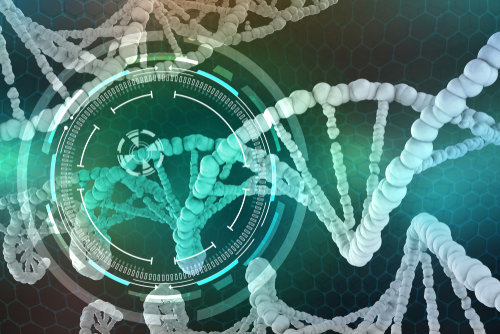Novel Gene Therapy Safely Prevents Muscle Deterioration in Animal Models of DMD, Study Reports

A novel one-time gene therapy that leads to the production of a dystrophin-related protein called utrophin prevents muscle deterioration and results in muscle regeneration in animal models of Duchenne muscular dystrophy (DMD) without triggering an immune response, a new study reports.
The study, “Non-immunogenic utrophin gene therapy for the treatment of muscular dystrophy animal models,” was published in Nature Medicine.
DMD is caused by mutations in the DMD gene, which leads to no or very little dystrophin in muscle cells and subsequent cell death and muscle weakness.
Gene therapy is designed to provide a working version of the DMD gene as a source of normal dystrophin to muscle cells. However, in animal models of DMD, a common problem with this approach has been the induction of a strong immune response against newly made dystrophin, as it is seen as foreign.
In the study, researchers at the Perelman School of Medicine at the University of Pennsylvania overcame this obstacle by using a gene therapy that produced a lab-made version of the naturally occurring utrophin, also known as dystrophin-related protein.
Utrophin is similar to dystrophin, with common structural and protein-binding regions. As such, the team hypothesized that utrophin, given in a harmless adenoviral vector, could provide the therapeutic benefit of dystrophin without its associated immune response.
The researchers tested the new therapy in mice and dogs with DMD mutations, including a large gene deletion that closely mirrors what is found in human patients.
Animals received the gene therapy via systemic administration shortly after they were born, which resulted in widespread distribution of the protein throughout their bodies, and no signs of toxicity.
Results showed complete suppression of all signs of DMD in the mice, compared with untreated controls. Utrophin production was sustained over time in skeletal and cardiac muscles, and was associated with stable muscle function.
In the dog model, the gene therapy did not induce any evidence of an immune response. These dogs, treated at four to seven days old, showed a robust production of utrophin and a four-fold gain in weight compared to previously reported weight loss and body-wide inflammation in dogs given human dystrophin.
Using limb biopsies, the team then found persistent production of utrophin and suppression of muscle damage associated with the new gene therapy, in contrast to little protein in the dying cells of limbs treated with dystrophin. Immune responses also differed markedly.
“The experiments showed that the immune response to dystrophin was 100 to 1,000 times stronger than it was to utrophin,” Hansell Stedman, MD, a professor at University of Pennsylvania and senior author of the study, said in a news release.
Dogs treated with the novel therapy also showed regeneration in their jaw muscles and almost no muscle degeneration. Of note, these muscles are among the first to deteriorate in untreated dogs with DMD.
“These findings support a model in which utrophin-derived therapies might be used to treat clinical dystrophin deficiency, with a favorable immunologic profile and preserved function,” the researchers wrote.
“For the first time, we’ve shown how a carefully constructed version of a dystrophin-related protein can safely prevent the breakdown of muscle and maintain its function over time in the most informative animal models,” Stedman said in another news release.
“This discovery has important implications for gene therapy and how we work toward safe and effective treatments for muscular dystrophy,” he said. “With these results, we have a strong rationale to move this forward into human clinical trials.”






